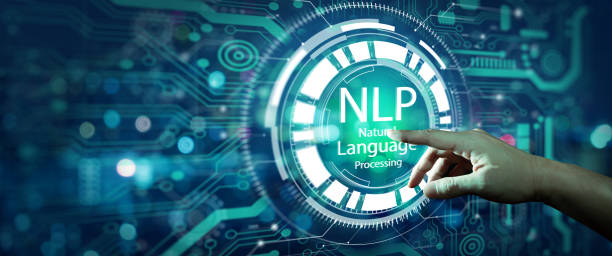Feeling overwhelmed with endless topics and uncertain where to start? You’re not alone. NLP Engineer interview preparation can be challenging, but a clear, structured roadmap can help you tackle those pain points head-on and boost your confidence. Here’s an engaging guide to help you navigate your journey—from day one to interview day.
Overcoming Common Interview Prep Pain Points
- Topic Overload: With numerous subjects like statistical NLP, deep learning models, transformer architectures, and behavioral questions, it’s easy to feel lost.
- Lack of Structured Guidance: Without a clear plan, you might spend too much time on one area while neglecting other essential topics.
- Time Management: Balancing preparation with daily responsibilities can be stressful.
- Insufficient Real-World Practice: Simulating real NLP scenarios is challenging without hands-on projects and interactive labs.
- Feedback Gaps: Limited constructive feedback may slow your progress and undermine your confidence.
Your 4-Week Preparation Roadmap
A dedicated, week-by-week plan can transform chaos into clarity. Here’s a suggested 4-week timeline that covers all the essential areas for NLP Engineer interviews.
Week 1: Build Your Foundation
Focus: Core NLP Concepts, Statistics & Basic Machine Learning
Daily Goals:
- Day 1-2: Review the fundamentals of NLP, including tokenization, stemming, lemmatization, and basic text preprocessing techniques. Refresh your knowledge of essential statistics (mean, variance, probability distributions) that underpin NLP algorithms.
- Day 3-4: Brush up on foundational machine learning concepts with a focus on supervised and unsupervised learning methods. Practice using Python libraries such as NLTK and SpaCy for basic NLP tasks.
- Day 5: Study key evaluation metrics for NLP models, including precision, recall, and F1 score.
- Day 6: Engage in hands-on exercises with small text datasets to implement basic NLP pipelines.
- Day 7: Reflect on your learnings and use our Interview Question Generator to test your foundational knowledge.
Tip: Combine theoretical study with practical coding exercises to build a solid foundation in NLP techniques.
Week 2: Dive into Advanced NLP & Machine Learning
Focus: Advanced NLP Techniques & Deep Learning Models
Daily Goals:
- Day 1-2: Study advanced NLP topics such as word embeddings (Word2Vec, GloVe) and context-aware representations. Understand how these techniques capture semantic meaning.
- Day 3: Deepen your understanding of deep learning approaches for NLP—review recurrent neural networks (RNNs), LSTMs, and GRUs.
- Day 4: Get hands-on with deep learning frameworks like TensorFlow or PyTorch to build and train basic NLP models.
- Day 5: Practice coding challenges that involve text classification, sentiment analysis, or language modeling.
- Day 6: Work on a mini-project to implement an end-to-end NLP solution using deep learning.
- Day 7: Reflect on your progress and simulate advanced technical questions using our Interview Question Generator.
Tip: Balance theory with practical project work to solidify your advanced NLP and deep learning skills.
Week 3: Master Transformer Models & Specialized NLP Applications
Focus: Transformer Architectures, Fine-Tuning, & Application-Specific Techniques
Daily Goals:
- Day 1: Study the fundamentals of transformer architectures and attention mechanisms. Understand the evolution from RNNs to transformers.
- Day 2: Learn about popular transformer-based models like BERT, GPT, and their applications in various NLP tasks.
- Day 3: Practice fine-tuning pre-trained transformer models on specific tasks (e.g., text classification or named entity recognition) using libraries like Hugging Face Transformers.
- Day 4: Explore advanced topics such as transfer learning, domain adaptation, and model interpretability in NLP.
- Day 5: Engage in whiteboard sessions to design an NLP system incorporating transformer models and discuss potential trade-offs.
- Day 6: Work on a mini-project or case study that challenges you to integrate transformer models into a real-world application.
- Day 7: Summarize your learnings and prepare a mock presentation on your approach to leveraging advanced NLP models.
Tip: Use whiteboard practice to articulate your design decisions and explain the trade-offs in deploying complex NLP solutions.
Week 4: Polish Your Behavioral & Soft Skills
Focus: Behavioral Interviews, Portfolio Review, & Mock Sessions
Daily Goals:
- Day 1: Prepare your portfolio by reviewing past projects, case studies, or research in NLP. Be ready to discuss your contributions and challenges.
- Day 2: Outline key experiences using the STAR method (Situation, Task, Action, Result) tailored to your NLP projects.
- Day 3: Record yourself answering common behavioral and technical questions to identify improvement areas.
- Day 4: Conduct mock interviews focusing on both technical scenarios and soft skills.
- Day 5: Seek constructive feedback from peers or mentors, and refine your responses.
- Day 6: Practice articulating your problem-solving process, how you optimize models, and your approach to handling complex data challenges.
- Day 7: Reflect on your progress, relax, and boost your confidence with final rounds of mock sessions using our Interview Answer Generator.
Tip: Effective communication of your technical expertise and collaborative mindset is key to impressing interviewers.
Bringing It All Together
By following this roadmap, you’re not only addressing the common pain points of interview preparation but also ensuring that every aspect of your NLP Engineer interview is covered. Remember:
- Break It Down: Tackle one component at a time—don’t try to master everything in one go.
- Stay Consistent: Even short, focused sessions add up over time.
- Use the Right Tools: Leverage interactive tools like our Interview Question and Interview Answer Generators to simulate real interview conditions and get valuable feedback.
- Believe in Yourself: Your unique analytical mindset and passion for NLP, combined with structured preparation, will set you apart.
Start your journey today, and turn every challenge into an opportunity for growth. With clear steps and the right mindset, your dream role as an NLP Engineer is well within reach!
Happy prepping, and here’s to your success!
o3-mini




